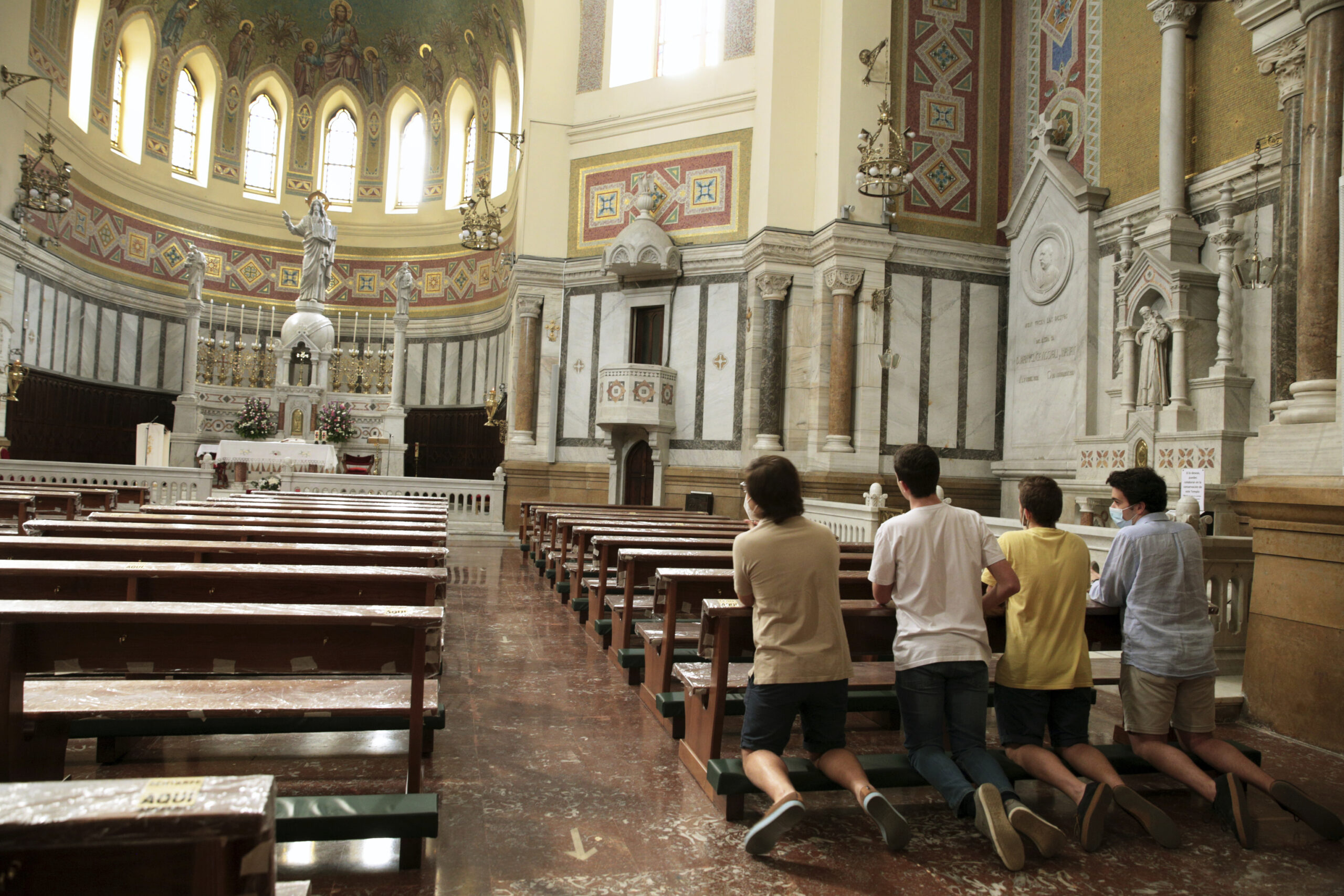In the last decade, Spain has witnessed an accelerated process of decline in the number of religious sacraments, with a particularly high impact on Catholic weddings and baptisms. This is shown by the data from the Spanish Episcopal Conference (CEE): baptisms, communions and weddings have plummeted, with a decrease of 40% between 2007 and 2019. These figures were followed by the year of the pandemic, where Historical lows were recorded due to the coronavirus crisis and the severe limitations on gatherings of people in public places.
To get a global idea, in 2009 there were more than 174,000 marriages in Spain, of which 45% were Catholic. Ten years later, in 2019, there were 161,000 weddings, of which only 21% were celebrated by the Church.
This phenomenon is reproduced in baptisms, since if in 2009 there were 495,000 births and 65% of babies were baptized, a decade later the percentage had decreased to 48%, which means that in 2019 they received baptism less than half of those born.
Along these lines, communions have dropped eight points in these ten years: from 28% in 2009 to 20% in 2019. Meanwhile, confirmations have increased by 28%.
This circumstance is aggravated by an older population and emptier churches. For experts, this is due to the generation gap of young people compared to previous generations, mistrust in the Church and outdated use of language. “Before religion was indifferent, now it is insignificant,” explains Rafael Ruiz Andrés, professor of Sociology of Religion at the Complutense University of Madrid.
After the pandemic, postponed celebrations have been recovered, but it is still not enough. The greatest example is seen at weddings. In 2009, civil marriages exceeded religious ones for the first time since 1996, the first year that the INE recorded data on the matter. In ten years there have been almost 45,000 fewer religious weddings, which represents a drop of 67.6 points and a clear change in trend.
However, the historical lows of these data do not worry everyone equally. For Juan Carlos, vicar of a parish in the district of Salamanca, in Madrid, the loss of the faithful and the fall of the sacraments means that now only those who want to do it do it and “those who do it by tradition are left out “. “Every time it is seen more with weddings, since there are still people who continue to marry by tradition, but who later do not take communion in the Church,” he points out.
With baptisms and communions the pattern is repeated. The former have dropped 46% since 2007. Before the start of the economic crisis, 66% of children born were baptized. A figure that three years ago was reduced to less than half. Communions, where the average age to receive this sacrament is between 9 and 10 years old, registered their lowest figure without counting the pandemic in 2019. There were only 204,618 communions, 20.3% less than in 2007.
Purificación Gómez and Sandra Grau, coordinators of catechesis for the First Communion in a concerted school in Valencia, point out that this decrease is due to family education and the lack of values in society. “There is still faith, but parents do not commit much to religion,” they explain.
They also assure that the “disengagement” from Catholicism derives from the years that pass between communion and confirmation. “There are many years of emptiness in which you only have contact with religion through the school subject, so they disengage.” The stage of adolescence that they go through does not help. The catechists affirm that young people are more “susceptible to social values” in force, in which right now “consumption and image” prevail.
This does not happen, however, in La Rioja, where in 2019 40% of the population claimed to be Catholic, according to the CIS. In this way, it was established as the most Catholic autonomous community in Spain, followed by Asturias, with 37.8%, and the Region of Murcia, with 36.2% of practitioners.
Confirmations, by contrast, have increased by 28.4% throughout Spain since 2007. “The reason they have risen is the approach to young people and active listening,” explains Santiago Ruiz Gómez, director of media for the Diocese of Calahorra and La Calzada-Logroño.
Others, Juan Melchor Seguí, rector of the Basilica of the Virgen de los Desamparados in Valencia, assure that this increase in confirmations is due to demographic evolution. “Fewer children are born and those of previous years are growing,” he explains, highlighting the 2008 crisis that caused a drop in births.
The aging of the population has also caused more anointing of the sick to take place now. The year of the pandemic was historic: 29,627 were registered, more than 4,500 more than in 2019. “There are more anointings than baptisms because there are fewer children. The population is aging,” explains Ruiz Gómez.
And while the population ages, young people do not identify with the positions promulgated by this institution. The sociologist from the Complutense University of Madrid (UCM) explains that this loss of faithful is due to the mistrust caused by the Church and a use of language that does not connect with them. However, from the Diocese of Logroño they confirm that there are young people, but that it is a “difficult to access” public. The solution they see is to upgrade and change that language.
That’s where figures like Father Damián María Montés come into play, who in addition to being a priest is a singer and tiktoker. Regarding the future of this congregation, the father warns: “The Church of the future will be small communities of people.” He assures that it will be necessary to “leave that mammoth Church” and bet on one where “people remain connected and outside the masses.” However, he remains calm: “The Church has been alive for more than 2,000 years. It has come out of all the crises, and I see it as very strong because of its tradition and popular religiosity.”
Conforms to The Trust Project criteria
















